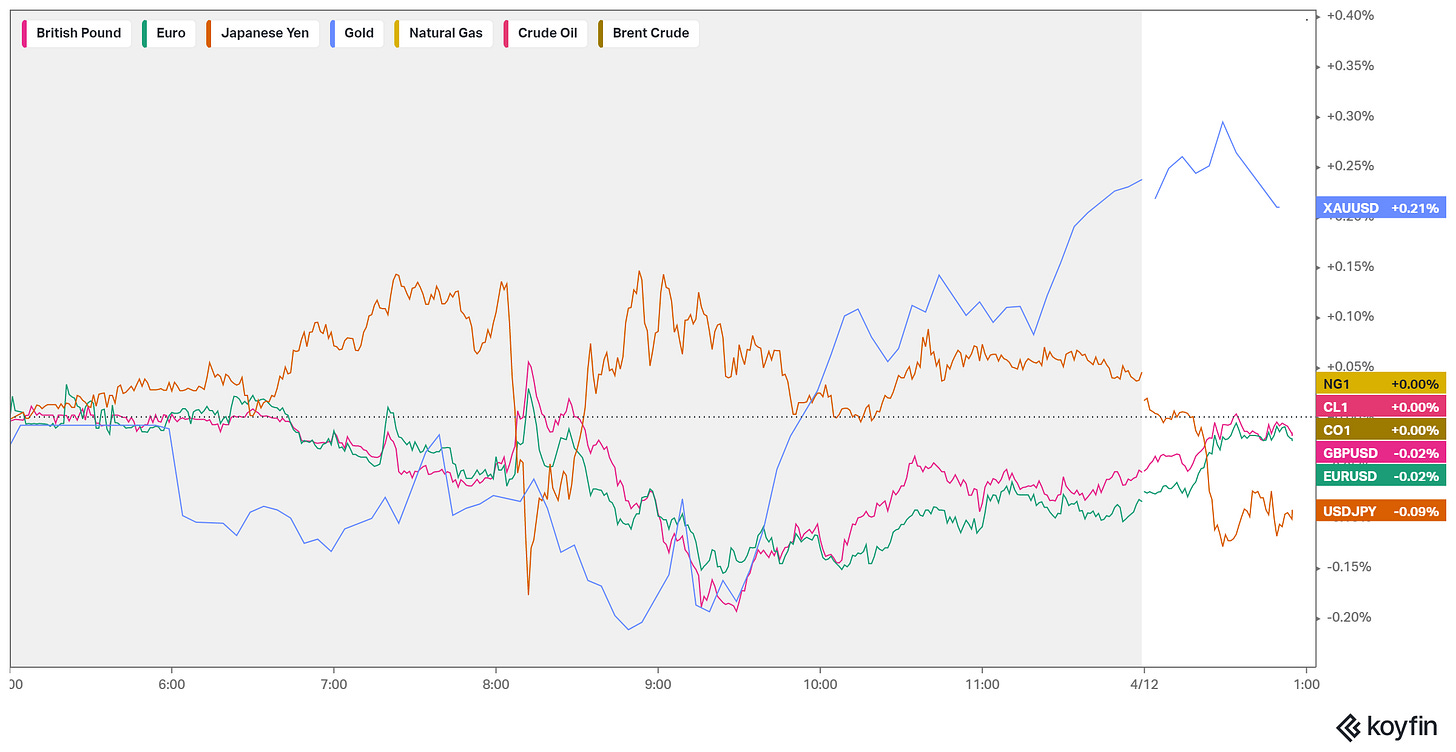We start the week with a lot of noise for markets to digest (China lockdowns, Elon Musk/Twitter, Russia/Ukraine, upcoming Q1 bank earnings). Nothing is bigger than today's inflation data.
We can see it reflected in the market behavior yesterday; Stocks were down, Interest rates were up, the dollar was up, Gold was up.
This is about inflation and rates.
We've been talking about the importance of Today's report for almost a month now. This data will be the first inflation reading that will include the spike in oil prices from $94 to as much as $130 a barrel - which has sent gas prices well north of $4.
This should give us the first double-digit inflation number since 1981. The market is looking for 8.4% - a number with some shock value, but that will likely turn out to be conservative.
This sets up for a big negative surprise. We will see.
How would the Fed handle a double-digit inflation print?
Call it transitory? Maybe. With oil now back in the $90s, there is cover to say that the influence on CPI from the spike in gas prices will fade, now that the government has released oil from the strategic petroleum reserves.
They however will have a hard time in the coming months explaining away bigger inflation numbers - driven by more factors than just a spike in oil prices. With that, a runaway interest rate market (a rational response from bond investors) would present a dangerous situation for the Fed and Treasury - this is where we may see the Fed go to "yield curve control."
As we discussed last week, "this would keep market interest rates from running away. But market interest rates are a market mechanism - if explicitly suppressed in an already hot inflationary environment, inflation could run wild.
With all of this, we can see the path for global governments to justify a new monetary system (central bank-backed digital currencies).
A consortium of 63 global central banks has already promoted CBDCs as the 'future of the monetary system.'




